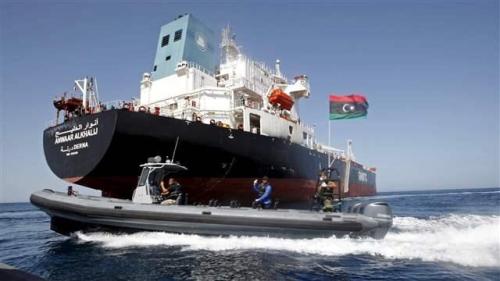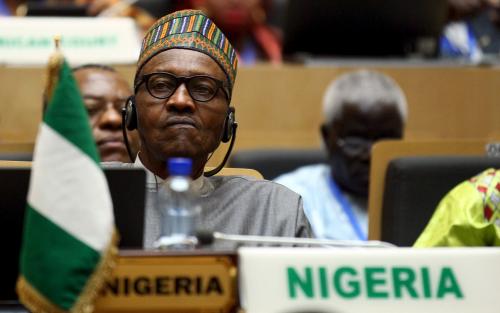Last week’s announcement that Prince Turki al-Faisal, former chief of Saudi intelligence and the current Saudi ambassador in London, will replace the long-serving Prince Bandar bin Sultan as ambassador in Washington provides the United States with an opening to restore its strategic partnership with Riyadh.
Prince Turki’s appointment will be difficult for some Americans. In his role as Saudi intelligence chief, he oversaw the kingdom’s dangerous dance with Osama bin Laden, both during and after the campaign to drive the Soviets from Afghanistan. Indeed, in 2002, Prince Turki was named as a defendant in a lawsuit filed by families of Sept. 11 victims claiming that official Saudi negligence had facilitated Al Qaeda’s operations (the portion of the suit naming Prince Turki was dismissed this year).
Americans are understandably angry about the involvement of Saudis in the Sept. 11 attacks. But Prince Turki’s coming to Washington actually offers the Bush administration a critical opportunity to make the war on terrorism more effective by refocusing efforts to shut down Al Qaeda’s global and regional terrorist networks.
The recent terrorist attacks in London and Sharm el Sheik, Egypt, in which more than 100 people lost their lives, strongly suggest that Al Qaeda—notwithstanding claims by some officials that it is “finished”—can still orchestrate operations and generate mass casualties on multiple continents with impunity. After attacks in Egypt, Iraq, Morocco, Saudi Arabia, Spain and Turkey over the past two years, the recent bombings should remind everyone that the war on terrorism remains, at its heart, a war on Al Qaeda.
There is probably no one, other than Osama bin Laden himself, who understands the Qaeda network better than Prince Turki. When I was with the Central Intelligence Agency, I saw how Prince Turki significantly improved the kingdom’s intelligence capacities. Tapping his experience and influence will do more to elicit greater Saudi cooperation in dealing with immediate terrorist threats than asking London to clamp down on Islamist hate speech or hoping that, this time, Pakistan will finally get serious about going after Mr. bin Laden and his closest associates.
Prince Turki, brother to the Saudi foreign minister and a close ally of their uncle, the moderately reformist Crown Prince Abdullah, could also be an important channel for reinvigorating our larger strategic partnership. Not only does the war on terrorism demand our utmost efforts, but energy security is rapidly emerging alongside it as one of the key strategic challenges in the first quarter of the 21st century.
Oil is at $60 a barrel, and demand from China and India is likely to drive prices even higher. Ensuring that competition for access to oil does not lead to global recession—or the next major international conflict—also cannot be achieved without Saudi Arabia, whose commanding share of reserves will almost certainly increase over the next two decades.
As anti-Saudi sentiment has grown post-Sept. 11, it has become fashionable to argue that the United States should “get tougher” with Riyadh, over both counterterrorism and energy. But American leverage over the kingdom has been declining for more than a decade as our strategic partnership has become a mixed blessing for the Saudi leadership. Starting in the 1990’s, the presence of American troops in the kingdom after the gulf war became a source of insecurity rather than security for a Saudi regime facing an increasingly radicalized Sunni majority and a marginalized and restive Shiite minority concentrated in the kingdom’s oil-rich eastern province.
The decline in American leverage over Saudi Arabia accelerated after Sept. 11. The United States had its own reasons for removing its military forces from Saudi Arabia in 2003, but the drawdown also reflected Saudi interest in a looser security relationship with Washington.
From a Saudi perspective, the overthrow of a Sunni strongman in Baghdad, followed by a chaotic occupation of Iraq that is providing a training ground for a new generation of anti-Saudi jihadists, has tilted the balance between Sunni and Shiite in the Persian Gulf region. Islamist Shiites dominate post-Saddam Iraq, and Iran under consolidated conservative leadership is emerging as a more powerful state.
Personal communication between President Bush and Crown Prince Abdullah remains warm and respectful, as manifested at their April meeting at the president’s ranch in Crawford, Tex. Superficial comity at the top, though, masks a lack of serious dialogue on a range of strategic issues and Saudi dissatisfaction with American policy.
Saudi interest in hedging the kingdom’s strategic position is evident in Riyadh’s cultivation of China as a customer for Saudi oil, a provider of consumer and manufactured goods to the Saudi market, and a supplier of military hardware to the Saudi armed forces and security apparatus—including missile and, perhaps, nuclear technology.
Prince Turki’s arrival could be a moment for the administration to begin to reverse these troubling trends. Bilateral engagement must go beyond exhortation and public criticism to allow for true give-and-take. The United States would need to be prepared for a serious conversation about modifying its policies toward regional security, stability and peacekeeping in Iraq and the Arab-Israeli peace process to recognize Saudi interests and initiatives – a conversation that Prince Turki could facilitate. Moreover, the United States should design its encouragement of economic and political reform in the kingdom to make clear that it wants not to destabilize Saudi rule but to strengthen reformist elements within the current power structure—elements that Prince Turki clearly represents.
The 60-year partnership between the United States and Saudi Arabia was not, as President Bush alluded in a 2003 speech, a mistake. It was, and remains, an indispensable element in America’s quest for a more stable regional and international order. The administration should take advantage of Prince Turki’s presence in Washington to give that partnership the attention it deserves.


Commentary
Op-edAmbassador with Portfolio
July 26, 2005